Every MarTech conference is always a whirlwind of insights and ideas. It usually takes me a couple of weeks after the event to synthesize what my key takeaways were from the event.
Here are five that have resonated deeply with me — with huge thanks to Katie Kelly for giving me permission to share her awesome sketch notes that illustrate these beautifully.
1. Building High-Performing Martech Teams
Patty Spiller, senior director of growth marketing at Livongo, gave a truly fantastic talk on The Secrets to a High-Performing Martech (or Growth) Team. Katie’s sketch notes captured her five principles that transcend marketing and martech as solid advice for anyone who is pulling together a team in an ever-shifting environment:
- Establish a winning vision with joint brainstorming — and secure early wins.
- Embrace failure — talk about it with the team, “it will be okay.”
- Empower the team with responsibility and ownership — be okay with letting go.
- Build trust & accountability — everyone needs to do what they say they will.
- Help each other grow — signal that feedback is “coming from a good place.”
Very inspiring. Mapping back to the 5 forces of marketing operations & technology, these are evergreen principles for succeeding with the internal “humanize” half of the grid.
2. Marketing Technology & Operations as Product Management
Pamela Della Motta, director of product for marketing platorms, and Kristian Kristensen, VP of engineering for subscription growth, both at The New York Times, delivered a terrific talk on Applying Product Management to Martech.
I’ve come to believe that thinking of marketing technology and operations as a “platform,” in the broadest sense of the word, is a powerful way to frame it as an enabler for the rest of the marketing and customer experience organization. Your entire martech stack, combined with the processes and structure you put in place around it, is your platform.
Patty and Kristian make a compelling case for managing that “platform” like a product manager would. Your martech platform is your product — serving internal and external constituents. As a martech product manager, you sit at the intersection of technology, UX, and business. A day-in-the-life of your work includes:
- Researching user needs and technology capabilities to address them
- Identifying concrete use cases that can be solved or improved
- Making clear decisions about the prioritization of demands
- Balancing centralization & decentralization, automation & humanization
- Influencing users in how they successfully apply the capabilities you deploy
Product management is an ongoing mission, unlike project management, which typically runs towards a finite ending. It also has a more evolutionary, market-oriented focus on continuous change, unlike classic “operations.” As with other kinds of product managers, martech product managers often find that this environment is ideal for agile management.
3. Guided Decentralization
I admit, I’m rather obsessed with the balancing of — or, really, the reinforcing combination of — centralization and decentralization principles in marketing technology and operations. So one of the presentations I was most looking forward to at MarTech was a keynote by Kathleen Schaub, vice president of the CMO Advisory Service at IDC, on Guided Decentralization: Safely Scaling Customer-Facing Empowerment.
Kathleen has been working with a number of her clients on this seemingly paradoxical challenge of combining centralization and decentralization and coined the term “guided decentralization” for it. She explained five principles behind making this work:
- Empower the edge — enable participants throughout your whole “network” to act.
- Shared mission — make sure everyone is on the same page, pulling for the same goal.
- Radical transparency — give everyone equal access to information to make decisions.
- Agile action — give people the tools and enablement to respond swiftly to circumstances, leveraging shared learning (e.g., on an airline, the pilot directs the flight — but a checklist directs the pilot).
- Orchestrated collaboration — the technology and data that provides systematic and contextual “guard rails” (i.e., orchestration) for distributed teams.
She referenced the book Team of Teams: New Rules of Engagement for a Complex World, by General Stanley McChrystal, as a source of inspiration for thinking about effective centralized leadership for a decentralized network of talent inside your organization.
4. From Martech Leadership to Marketing Leadership
I was honored and delighted to host keynotes from two CMOs who I greatly admire. The first was a fireside chat with Ann Lewnes, EVP and CMO of Adobe. We discussed a range of topics, but a few of her insights that stuck with me on the balancing of automation and humanization included:
- Marketing requires the creative human element — and will for a long time.
- Automation and AI is more often being applied to the jobs people don’t want.
- In this way, automation can drive humanization by freeing people for higher work.
Adobe runs internal centers of excellence for marketing operations and marketing technology — actually two different teams in their organization. She described three keys to success in this work:
- Implementation — executing well counts for a lot.
- Train staff — create great marketing enablement to help people leverage the tech.
- Change processes to optimize what the tools make possible.
The second CMO keynote was from Mayur Gupta, the new CMO of Freshly, and formerly the VP of marketing & growth at Spotify, who took us through his journey from starting as a software engineer and marketing technologist to becoming a CMO and the lessons he learned along the way.
Some of his wisdom that resonated with me:
- Never stop learning — learning and seeking is the engine of personal growth.
- Look beyond tech and product and strategy to serving human experiences.
- Marketing needs systems thinking (now more than ever).
- Don’t let data destroy the “irrationality” of marketing.
5. Principles of IT Governance for Martech
Kelly Jo Horton, senior engineer of martech at Docker, put together a great session with Brian Donaldson, lead data engineer, and Chris Borkenhagen, their CIO, on Maximizing Efficiency & Scalability with the Right Team, Structure, Data and Stack.
Docker manages most of their marketing technology in the IT department instead of the marketing department. Marketing is certainly a key stakeholder. But Docker sees much of this technology as valuable to departments and teams beyond marketing. Centering it in IT lets them better serve cross-organizational needs.
For Docker, marketing ops sits perfectly at the intersection of the CMO, the CIO, the CTO, and their sales organization.
It’s a compelling model, if IT is in tune with the needs and dynamics of marketing. And with a martech leader like Kelly on board, it’s clear that they are.
However, even you choose to lead marketing technology operations from within the marketing department, you can benefit from the ideas of good IT governance that Docker shared:
- Get all the data in one place for a single source of truth (centralization).
- Bring an engineering mindset to marketing operations (automation).
- Strive for full awareness & transparency of martech with business stakeholders.
- Implement a responsibility model like RACI for team accountability.
- Embed security and privacy compliance into your regular operating processes.
- Run regular “office hours” as a way to provide martech support & training to marketing teams.
Thank you to everyone who joined us at MarTech
Thank you to all the amazing speakers, moderators, sponsors, producers, and engaged attendees who made this past MarTech so special. If you’d like to share your own experience and learnings with your peers, please consider nominating a presentation for our next MarTech event in Boston, September 16-18.
P.S. Here’s a recreation of the opening keynote from this past MarTech. It’s the next best thing if you missed the event in person — we started with this and then dived deeper, much deeper, from here.
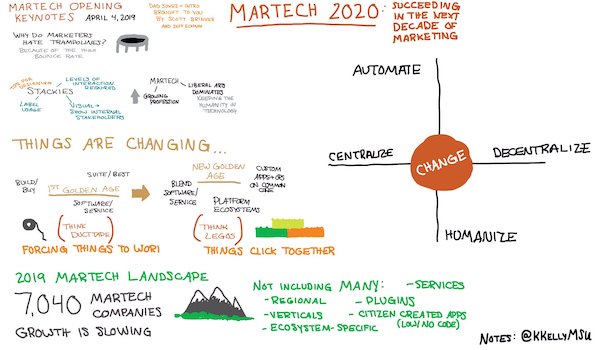
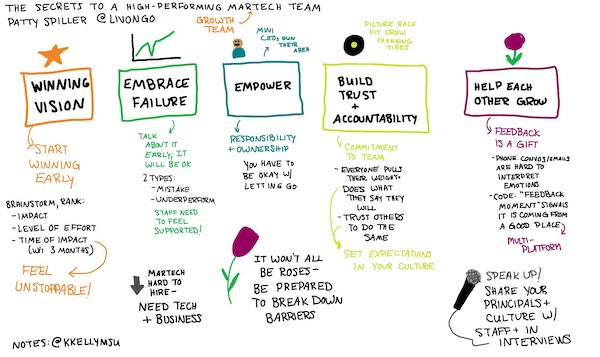
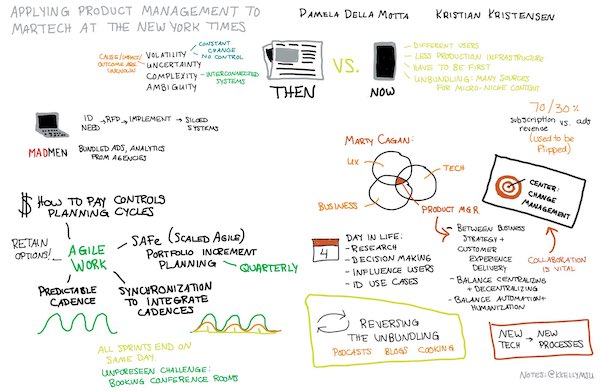
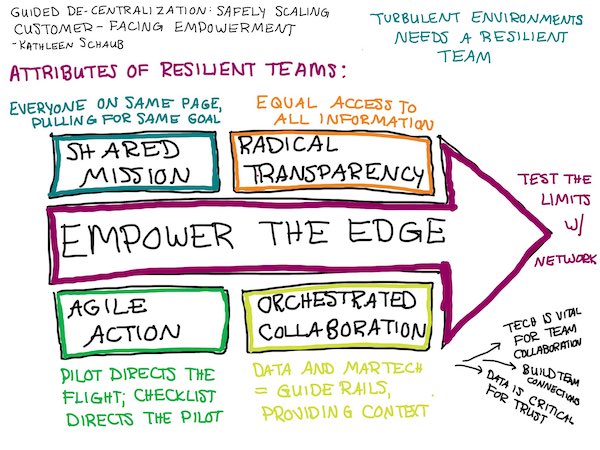
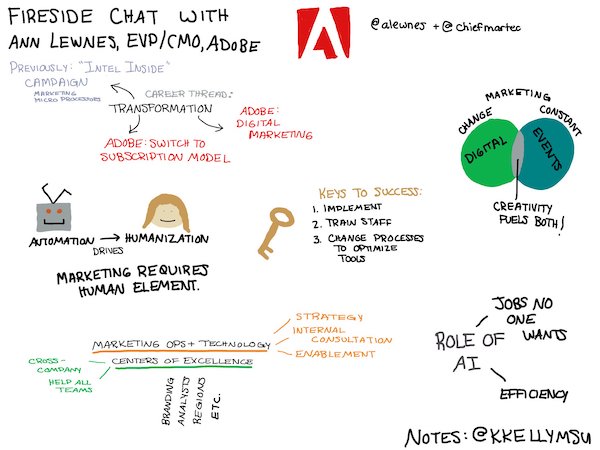
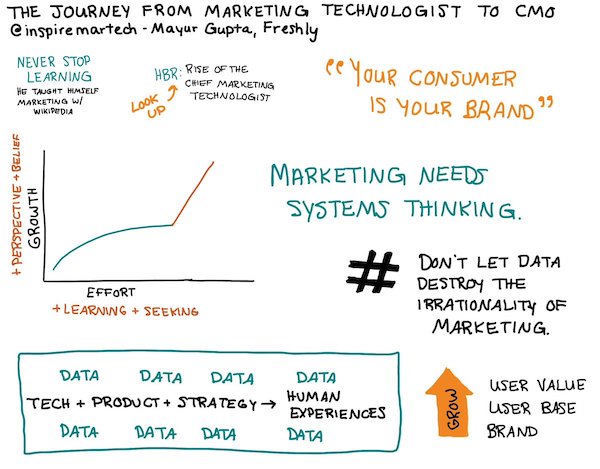
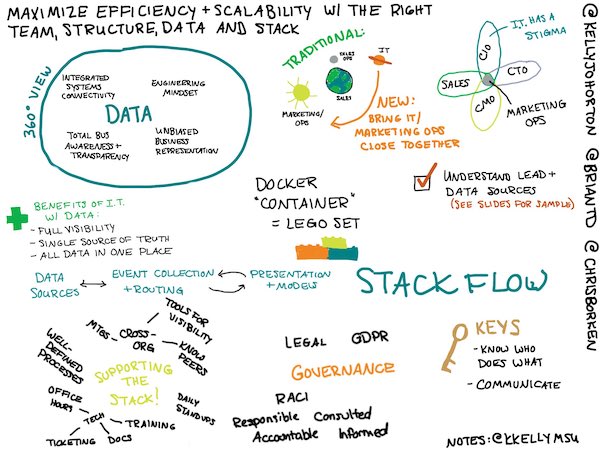


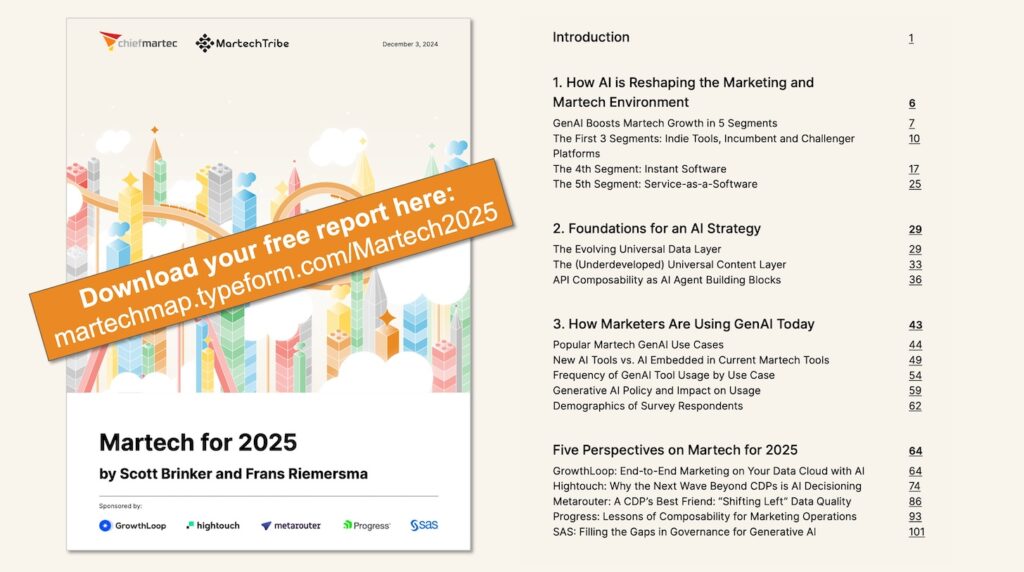
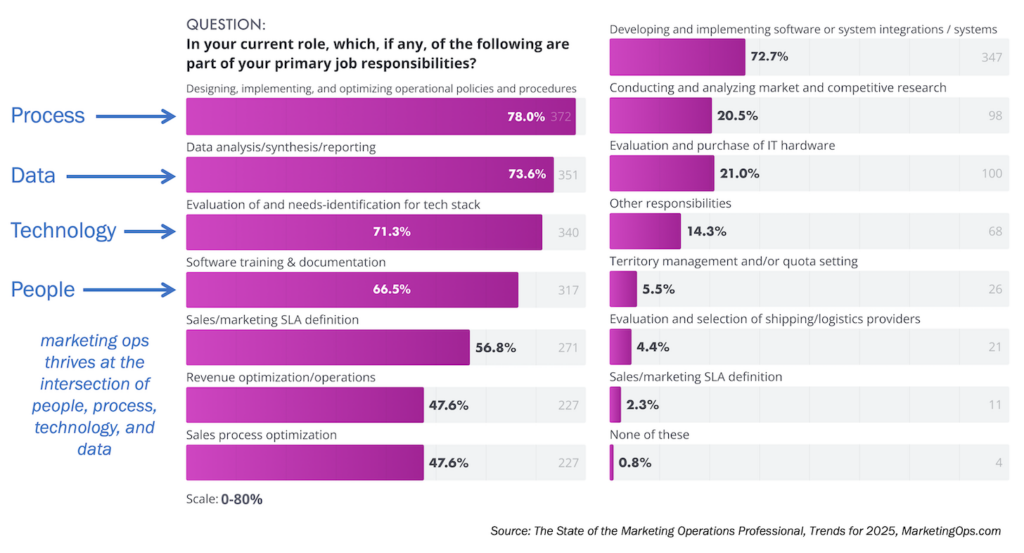
Thank you so much for this useful article. I am currently working as a digital marketer in a leader real estate company in Turkey. I will try your suggestions for my job. Thank you so much again. I will read again and again in following days.